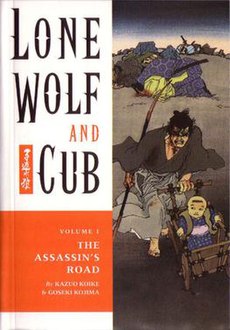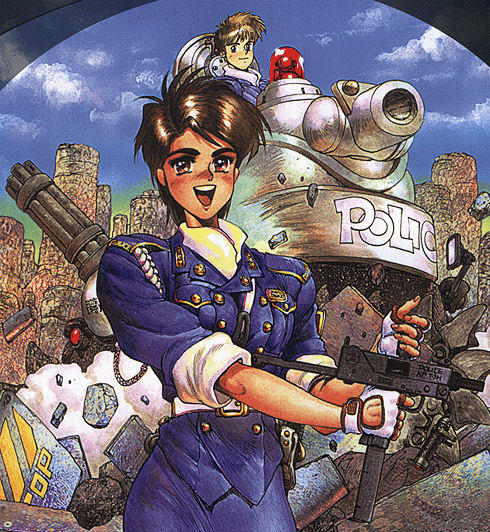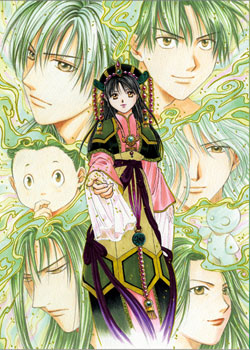
I haven't read very many comics, but I've been reading The Punisher: War Zone. I'm really digging it so far. Any Punisher comic fans here?



In fact Anaximander had a geometric image of the universe. The elements, however they struggled and whatever forms they assumed, had to be in some kind of equilibrium, an "equality of power." All of them derived ultimately from the infinite indeterminate substance which he called apeiron, a neutral material from which binary oppositions emerged: dark and light, hot and cold, dry and wet, thick and thin, as well as Water, Vapour and Fire. These elements in turn combined to give rise to living creatures, plants, animals, humans, according to a natural order whereby no one element dominated the others in any form of dunasteia or monarchia. A doctor and Pythagorean philosopher, Alcmeon, repeated in the early fifth century the image which by then had become commonplace that "health was a balance of powers, isonomia ton dunameon, while sickness resulted on the contrary from the domination of one element over the others: (J.-P. Vernant).
In short, this was a view of a cosmos without a hierarchy, where no one element fully obeyed another, a world in which conflicts balanced out, reminding us irresistibly of the social and political structure of the polis. Government was no longer in the hands of gods or kings but in the hands of men who had equal rights. Anaximander's universe reflected the idealized equilibrium of the city-state. The world view changed because the world had changed and it became possible to project the everyday world on to the cosmos.


'Yes,' says Bruder PfŲrtner, 'I do understand, you've no idea how often I hear this sort of thing. So many people are urgently needed elsewhere when the time comes. And what about me, eh? Have you perhaps a little thought for me? I am like a diligent housewife who cleans the house and cooks the meal and lays the table, all is in readiness but the expected guest suddenly can't be bothered to come. Only in this case I've cleaned the house and cooked the meal and laid the table of history, and one can't take liberties with history; it isn't possible, the complexity of the energy exchanges is absolutely staggering.'
'History!' I say, 'I'm talking about human lives!'
'And I'm talking about human deaths,' says Bruder PfŲrtner. 'Tonight is the fall of Antioch and I need all the Jews and Muslims I can lay my hands on. You have no more time for rushing about, this must be the whole world for you in the time you have left.' With that he disappears. When I turn back to my young death he also is gone.

"But remember - that dark world of fungoid gardens and windowless cities isnít really terrible. It is only to us that it would seem so. Probably this world seemed just as terrible to the beings when they first explored it in the primal age. You know they were here long before the fabulous epoch of Cthulhu was over, and remember all about sunken Rílyeh when it was above the waters. Theyíve been inside the earth, too - there are openings which human beings know nothing of - some of them in these very Vermont hills - and great worlds of unknown life down there; blue-litten Kín-yan, red-litten Yoth, and black, lightless Níkai. Itís from Níkai that frightful Tsathoggua came - you know, the amorphous, toad-like god-creature mentioned in the Pnakotic Manuscripts and the Necronomicon and the Commoriom myth-cycle preserved by the Atlantean high-priest Klarkash-Ton.
"But we will talk of all this later on. It must be four or five oíclock by this time. Better bring the stuff from your bag, take a bite, and then come back for a comfortable chat."


The two men went along some tortuous passages and up a dark staircase and came to a secluded room where one of the stewards was uncorking bottles for a few gentlemen. One of these gentlemen was Mr. O'Madden Burke, who had found out the room by instinct. He was a suave, elderly man who balanced his imposing body, when at rest, upon a large silk umbrella. His magniloquent western name was the moral umbrella upon which he balanced the fine problem of his finances. He was widely respected.


"I can lie very well, even when it's pointless. When one lies out of necessity, it has less value, obviously. I can go a whole day without saying a single true thing. I even won a lying award, at school, last year."
"You're lying," I say. But my reply doesn't bother her for a second.


'You needn't say yes, if I guess right and you are under oath to keep silent. I shall know by your face, and never tell. Now see if I'm not right. Out there they have wild doings, and it's my belief you were in some of 'em. I don't mean robbing mails, and KluKluxing, and that sort of thing; but defending the settlers, or hanging some scamp, or even shooting a few, as a fellow must sometimes, in self-defence. Ah, ha! I've hit it, I see. Needn't speak; I know the flash of your old eye, and the clench of your big fist.' And Ted pranced with satisfaction.
'Drive on, smart boy, and don't lose the trail,' said Dan, finding a curious sense of comfort in some of these random words, and longing, but not daring, to confirm the true ones. He might have confessed the crime, but not the punishment that followed, the sense of its disgrace was still so strong upon him.
'I knew I should get it; can't deceive me long,' began Ted, with such an air of pride Dan could not help a short laugh.
'It's a relief, isn't it, to have it off your mind? Now, just confide in me and it's all safe, unless you've sworn not to tell.'
'I have.'
'Oh, well, then don't'; and Ted's face fell, but he was himself again in a moment and said, with the air of a man of the world: 'It's all right--I understand--honour binds--silence to death, etc. Glad you stood by your mate in the hospital. How many did you kill?'
'Only one.'
'Bad lot, of course?'
'A damned rascal.'
'Well, don't look so fierce; I've no objection. Wouldn't mind popping at some of those bloodthirsty blackguards myself. Had to dodge and keep quiet after it, I suppose.'
'Pretty quiet for a long spell.'
'Got off all right in the end, and headed for your mines and did that jolly brave thing. Now, I call that decidedly interesting and capital. I'm glad to know it; but I won't blab.'
'Mind you don't. Look here. Ted, if you'd killed a man, would it trouble you--a bad one, I mean?'
The lad opened his mouth to say, 'Not a bit,' but checked that answer as if something in Dan's face made him change his mind. 'Well, if it was my duty in war or self-defence, I suppose I shouldn't; but if I'd pitched into him in a rage, I guess I should be very sorry. Shouldn't wonder if he sort of haunted me, and remorse gnawed me as it did Aram and those fellows. You don't mind, do you? It was a fair fight, wasn't it?'















|
|